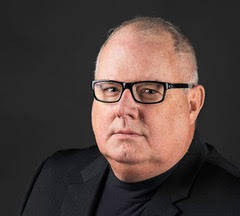
The sign on the counter read, “Please do not dig through our tip jar.” I was taken aback by that and spoke with the employee. I learned only a few customers rummaged through the tip jar, claiming they were coin collectors. I asked if anyone actually swapped a coin, and the employee sighed and replied, “Not to my knowledge.”
At an early age, I was taught not to touch anyone’s property unless I had permission. I would never think of digging through a tip jar, let alone retrieving a coin, rare or not. My first thought upon departing was, “What type of person does this?” and “Are we becoming a nation of sociopaths?”
In her book “The Sociopath Next Door,” Harvard professor Martha Stout, Ph.D., claims that one in 25 Americans is a sociopath. Not on the level of mass murderers Ted Bundy and Charles Manson, but those folks who display at least three of the seven traits of a sociopath: cannot conform to social mores; are manipulative and deceitful; don’t plan ahead and act impulsively; are aggressive and edgy; act recklessly with no thoughts about their own personal safety or the safety of others; constantly act irresponsibly; and show no remorse after hurting, mistreating or stealing from another person.
In other words, 4% of the population has no conscience. This may seem like a low number, but consider that only 1% of the population is schizophrenic, and the number of sociopaths exceed those who are diagnosed with colon cancer each year.
The good news is, outside of those who commit crimes, most sociopaths do not rise to a social or political level where they can inflict emotional pain and distress on others. The bad news is sociopaths with high IQs infiltrate political parties, governmental agencies and businesses.
The few high-IQ sociopaths who develop a charismatic personality wreak havoc across the political, economic and social spectrums. They are articulate and nattily dressed and project an image that veils their quest for manipulation and domination of others.
After reading Stout’s book, published in 2006 by Broadway Books, I realized that many of the folks I worked for, in the military and in police agencies, were definitely sociopaths. I am sure I have plenty of company. Some folks may confuse sociopaths with psychopaths. This is easy to understand because while Stout sees no difference, others in her profession distinguish psychopaths by the joy the offenders receive in inflicting pain or death on others.
Law enforcement officers handle more than their fair share of sociopaths.
Those who rummage through tip jars may or may not be sociopaths. They do not concern me. However, if I observe them digging through someone else’s property, I will call them out. (I once worked for tips many years ago.)
Many of the 96% of the population who are not sociopaths have trouble understanding the acts of the other 4%. Evil is an abstract and often unseen threat to them. The nice people may call sociopaths “eccentric,” rationalize they had a terrible childhood or otherwise suggest an alibi consistent with the excuses of the enablers of addicts and alcoholics.
The Gilroy, California; El Paso, Texas; Dayton, Ohio, and Las Vegas gunmen were definitely sociopaths, as are all mass shooters. They dwell at the evil end of sociopaths, but there is a higher tier: those charismatic high-IQ sociopaths who meteorically rise to political power and kill by the millions (Hitler, Stalin, Pol Pot and Mao).
Sociopaths are not sterile. They procreate and will always be with us. Sociopaths and crime are aboard a moving train that we cannot stop. However, we do have the means to control the speed and carnage of that train.
The Second Amendment is more important now than it was over 200 years ago. “We The People” must always have the means to defend ourselves and defend those who cannot defend themselves. We cannot allow tyrants, sociopaths or criminals to destroy our country.
Dan Jennings is a retired Army captain and a retired BCPD lieutenant. He can be reached at bcpd267@cox.net.